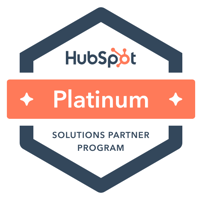While every business is different, you should be aware of some key differences between HubSpot and Salesforce. Let's compare these two platforms in the information below.

HubSpot vs. Salesforce: CRM System Comparison
Pricing
Obviously, neither HubSpot nor Salesforce offers one single flat rate for their services. Both companies charge different amounts according to the number of features and the level of support needed. Those amounts range from free (for basic services) to $7,500/month or higher.
One big difference between the two is how they charge per seat. HubSpot only charges for additional revenue-generating users on their platform. It means that "free seats" are available for members of your team that just need visibility into your operations, without needing to actually perform typical sales functions. In contrast, Salesforce charges for each and every user, no matter the level of functionality they need.
Here are some other key pricing differences between the two brands:
- Enterprise Plans. HubSpot charges $6,000/month for 50 users; Salesforce charges $7,500/month for 50 users.
- CRM Implementation. HubSpot charges a flat rate of $3,000 for Enterprise onboarding (additional technical consulting services will cost extra); Salesforce charges $5,000 for their "Jump-Start" implementation.
- Support Costs. HubSpot includes phone and email support for all of their Professional and Enterprise plans; Salesforce charges 20% of the net cost for phone support and 24/7 coverage. And 30% of the net cost for access to additional features (plus an additional 5% for support based in the United States).
For the most part, it's clear to see that the pricing advantage goes to HubSpot.
Ease of Use
No matter what CRM system you're using, it's impossible to obtain the best results from it unless your team is familiar with the software, knows how to navigate the platform, and understands the different functionalities available to them. Put simply: the easier your CRM is to use, the better. How do HubSpot and Salesforce stack up in this regard?
HubSpot has a sterling reputation in terms of the simplicity and intuitiveness of its user interface. Most HubSpot clients can quickly organize and administer their CRM. This is without having to reach out to tech support or hire for a dedicated admin position. And even if a more sophisticated solution is called for, HubSpot users can leverage custom objects to develop a customized CRM framework for their business.
Salesforce offers a wide range of powerful functionalities. However, their platform comes with a fairly steep learning curve. Many Salesforce customers are forced to hire consultants or dedicated admins to implement and maintain their CRM. Other clients have to train current employees to become admins.
In terms of simplicity, there's no getting around the fact that HubSpot has Salesforce beat by a mile.
Features
Both HubSpot and Salesforce offer a ton of helpful features for sales reps, managers, as well as company executives alike. Here is a comparison of just a few key feature categories that both platforms contain:
Functionality
As previously mentioned, HubSpot is renowned for its simplicity and ease of use. However, it also boasts powerful functionalities, including contact management, sales automation, analytics, pipeline management, customer segmentation, etc. In short, HubSpot's platform offers a simple interface along with the power to drive sales for an entire enterprise-level organization.
Salesforce has an extremely robust network of features and functionalities that can handle highly complex business processes. Salesforce's platform includes world-class sales analytics, forecasting, reporting, automation, as well as contact management. In need of deep customization for your business? Then the sophisticated products and features that come with Salesforce may be exactly what you're looking for.
Integrations
Both HubSpot and Salesforce offer a wide range of integrations with other apps and platforms. Of course, it's also important to look at how well their base products integrate with one another.
HubSpot's CRM platform — including their Sales, Marketing, Service, and Content Management Hubs — has been built "from the ground up" by HubSpot alone. In other words, there has always been a unified, comprehensive strategy in terms of user experience, resulting in exceptional consistency as well a harmonious integration across all of HubSpot's foundational tools.
In terms of integration with 3rd party apps, HubSpot has their App Marketplace. This places a heavy emphasis on powerful functionality and ease of use. It is simple to install and configure integrations via the App Marketplace; and out of the 500+ apps and integrations it contains, many are native to HubSpot.
Salesforce has a wider range of available products and tools. However, the Salesforce platform has gradually come together through the acquisition of companies like Pardot. This means even their base functionalities are less integrated than HubSpot's fundamental systems. One potential result of this "patchwork" approach is a disconnect between teams, departments, as well as engagement channels — and ultimately a diluted customer experience.
When it comes to 3rd party integrations, Salesforce fares better. Salesforce's AppExchange is the largest CRM app marketplace in the industry and offers over 3,400 apps as well as integrations for clients.

Support
One final area to examine is the "support package" that both companies offer.
HubSpot includes customer support (via phone or email) as part of their Pro and Enterprise plans at no extra cost. In addition, HubSpot Academy offers free self-service learning and development modules to help clients get more familiar with the system, and unleash its full potential.
Salesforce offers 24/7 premier support. But charges 20% of the client's net contract price for that service. Since this fee is percentage-based, you would have to pay more for support as your business grows, and more users are added to your plan.
Conclusion
In summary, both HubSpot and Salesforce have their unique strengths and weaknesses. However, in terms of pricing, simplicity, as well as features, we would recommend HubSpot's CRM platform as the preferred choice for most businesses.
If you'd like to learn more about how HubSpot's CRM can help your business to grow, reach out to our friendly team of experts at OverGo Studio today.
Take advantage of our free Hubspot CRM Configuration to start modernizing your sales process. This is a limited-time offer where we will design a sales pipeline specifically for your business. Start generating more revenue and improve your close rates by building your first high-performing sales pipeline on HubSpot at no cost. Simply schedule a discovery session with our team of HubSpot experts.


